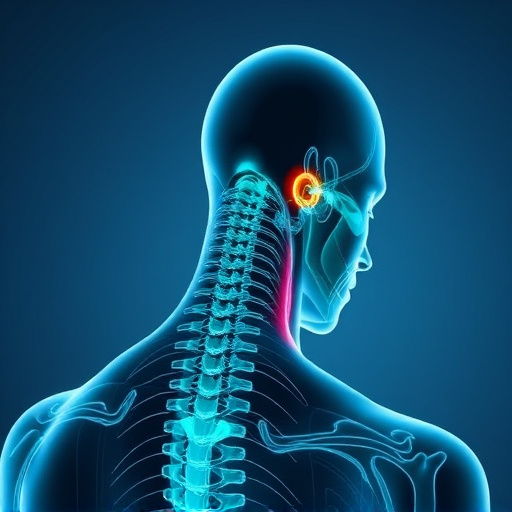Whiplash treatment specialists are crucial for athletes and fitness enthusiasts recovering from neck injuries caused by impact sports or accidents. They offer tailored plans combining rest, medication, manual therapy, exercise, education on posture and movement, along with advanced therapies like PRP and shockwave treatment. These comprehensive strategies not only alleviate pain, enhance mobility, and speed recovery but also prevent future reoccurrences, enabling athletes to return to their active lifestyles safely and effectively. Nutrition, lifestyle modifications, and continuous monitoring by specialists further optimize healing and reduce recurrence risks, fostering long-term athletic development.
Rehabilitation is an essential component of athletic recovery, especially for those who push their bodies to the limit. This comprehensive guide explores the vital aspects of healing and strengthening athletes’ and fitness enthusiasts’ paths to return to their active lifestyles. From understanding common athletic injuries and the critical role of a whiplash treatment specialist to customized rehabilitation plans and advanced healing techniques, this article covers all you need to know for optimal recovery.
- Understanding Athletic Injuries and Rehabilitation
- The Role of a Whiplash Treatment Specialist
- Customized Rehabilitation Plans for Optimal Recovery
- Techniques and Therapies for Accelerated Healing
- Preventing Recurrence: Long-Term Strategies for Athletes
- Nutrition and Lifestyle Modifications for Enhanced Rehabilitation
Understanding Athletic Injuries and Rehabilitation

Athletic injuries can range from sprains and strains to more severe conditions like whiplash, often sustained during high-impact sports or accidents. Whiplash, a common injury in contact sports and car crashes, involves damage to the neck muscles and ligaments due to sudden acceleration or deceleration. A whiplash treatment specialist plays a crucial role here, offering specialized care tailored to athletes’ unique needs.
Rehabilitation for these injuries goes beyond physical therapy. It requires a comprehensive approach that includes rest, medication, and gradual return-to-activity strategies. Whiplash specialists employ techniques such as manual therapy, exercise programs, and education on posture and movement patterns to restore function, reduce pain, and prevent reoccurrence. This personalized process empowers athletes and fitness enthusiasts to safely resume their activities while minimizing the risk of future injuries.
The Role of a Whiplash Treatment Specialist

A whiplash treatment specialist plays a crucial role in the rehabilitation process for athletes and fitness enthusiasts who have suffered neck injuries, often associated with car accidents or sports-related impacts. These specialists are trained to assess and address the complex issues that arise from whiplash, which can include muscle spasms, joint restrictions, and nerve sensitivity. Using advanced techniques and evidence-based practices, they develop personalized treatment plans targeting pain reduction, improved mobility, and accelerated recovery.
The expertise of a whiplash treatment specialist extends beyond manual therapy. They often incorporate modalities such as heat/cold therapy, electrical stimulation, and massage to enhance healing. Additionally, these professionals educate athletes on ergonomy, posture correction, and injury prevention strategies to mitigate the risk of future neck injuries. Their holistic approach ensures that athletes return to their sport or fitness routines not only stronger but also with a deeper understanding of their body’s needs.
Customized Rehabilitation Plans for Optimal Recovery

Customized rehabilitation plans are essential for athletes and fitness enthusiasts aiming for optimal recovery. Unlike one-size-fits-all approaches, these tailored programs address individual needs and specific injuries. A whiplash treatment specialist, for instance, can design a plan that focuses on alleviating pain, restoring mobility, and strengthening muscles affected by neck trauma—a common injury among active individuals.
Such plans often incorporate a combination of physical therapy, exercise regimes, and rest strategies. For example, a specialist might recommend targeted stretching and strengthening exercises, along with heat or ice therapy, to accelerate healing and prevent future injuries. The key lies in the personalization, ensuring that every aspect of the plan complements the patient’s unique body and injury profile for accelerated and effective recovery.
Techniques and Therapies for Accelerated Healing

Rehabilitation plays a pivotal role in accelerating healing for athletes and fitness enthusiasts, ensuring they regain optimal physical function after injuries. Techniques such as physiotherapy, massage therapy, and manual manipulation are instrumental in this process. For instance, a whiplash treatment specialist can offer targeted interventions to alleviate neck pain and related symptoms commonly associated with sports-related traumas.
Additionally, advanced therapies like platelet-rich plasma (PRP) injections and shockwave therapy have gained popularity for their potential to stimulate tissue repair and reduce recovery times. These innovative approaches complement traditional rehabilitation methods, enabling athletes to return to their active lifestyles more swiftly and effectively.
Preventing Recurrence: Long-Term Strategies for Athletes

Preventing Recurrence is a crucial aspect of rehabilitation for athletes and fitness enthusiasts, as it aims to equip them with long-term strategies to maintain health and performance. Whiplash treatment specialists play a pivotal role in this process by addressing underlying issues that can lead to re-injury. Through comprehensive assessments and personalized plans, these experts help athletes regain mobility and strength while incorporating injury prevention techniques into their routines.
One key strategy involves developing resilience through functional training, focusing on core stability, balance, and Proprioception. Athletes are also educated on load management, rest, and recovery practices to avoid overtraining. Regular check-ins with a whiplash treatment specialist allow for continuous monitoring and adjustments, ensuring athletes stay on track and significantly reducing the risk of recurrence.
Nutrition and Lifestyle Modifications for Enhanced Rehabilitation

Nutrition plays a pivotal role in enhancing rehabilitation for athletes and fitness enthusiasts, especially after injuries like whiplash. A balanced diet rich in lean proteins, complex carbohydrates, healthy fats, vitamins, and minerals supports tissue repair and overall healing. Specifically, protein is crucial for muscle recovery while omega-3 fatty acids found in foods like fish and flaxseeds can reduce inflammation.
In addition to nutrition, lifestyle modifications are essential. Regular exercise tailored by a whiplash treatment specialist can improve flexibility, strength, and range of motion. Activities focusing on balance, coordination, and core stability can help prevent future injuries. Furthermore, adequate sleep, stress management techniques, and staying hydrated contribute to optimal recovery, ensuring athletes and fitness enthusiasts return to their active lifestyles stronger and healthier.














